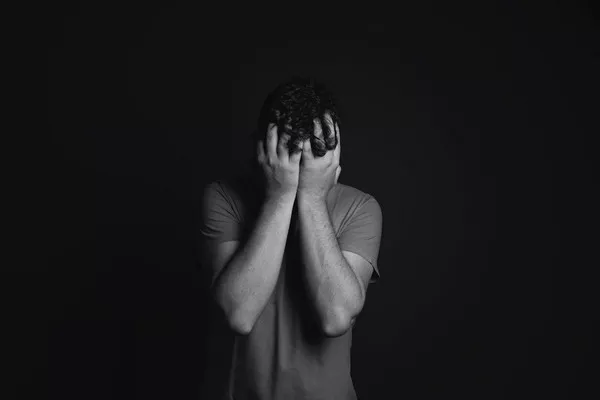Witnessing someone experiencing a mental breakdown can be distressing and overwhelming. A mental breakdown, also known as a mental health crisis, refers to a severe and sudden onset of emotional or psychological distress that impairs an individual’s ability to function effectively. It is crucial to approach these situations with sensitivity, understanding, and knowledge of appropriate actions. In this article, we will explore how to support someone during a mental breakdown and provide guidance on what to do to ensure their safety and well-being.
1. Recognizing the Signs of a Mental Breakdown
Recognizing the signs of a mental breakdown is the first step in providing effective support. While the specific symptoms can vary depending on the individual and the underlying cause, some common signs may include:
Intense and prolonged emotional distress: The person may display extreme sadness, anger, anxiety, or irritability. They may express feelings of hopelessness, helplessness, or an overwhelming sense of despair.
Changes in behavior: The individual may exhibit sudden changes in behavior, such as withdrawal from social activities, neglect of personal hygiene, or difficulty concentrating. They may also engage in self-destructive behaviors or express thoughts of self-harm or suicide.
Physical symptoms: Physical manifestations, such as headaches, gastrointestinal problems, or insomnia, may accompany a mental breakdown. The person may experience fatigue or exhibit changes in appetite and weight.
Disconnection from reality: In some cases, individuals may experience a loss of touch with reality, including hallucinations or delusions. They may have difficulty distinguishing between what is real and what is not.
2. Remain Calm and Provide a Safe Environment
When someone is having a mental breakdown, it is essential to remain calm and composed. Your calm demeanor can help create a sense of stability and security for the individual in crisis. Panicking or becoming agitated may further escalate their distress. Take a deep breath and focus on maintaining a non-threatening presence.
Creating a safe environment is crucial during a mental health crisis. Ensure that there are no immediate physical dangers present, such as sharp objects or substances that could be harmful. Encourage the person to move to a quiet and comfortable space where they can feel secure. If necessary, remove any potential triggers or sources of stress from the immediate surroundings.
3. Practice Active Listening and Validation
Active listening is a fundamental skill when supporting someone during a mental breakdown. Provide your full attention and demonstrate genuine interest in what the person is saying. Avoid interrupting or offering unsolicited advice. Instead, focus on understanding their feelings and perspective without judgment.
Validation is a powerful tool in helping someone feel heard and understood. Acknowledge their emotions and experiences without dismissing or minimizing them. Use phrases like, “I can see that you’re feeling overwhelmed,” or “It sounds like this situation is incredibly challenging for you.” Validating their feelings can help the person feel less alone and more supported.
4. Encourage Self-Care and Coping Strategies
Encouraging self-care and coping strategies can be beneficial during a mental breakdown. Assist the person in identifying healthy coping mechanisms that work for them. This may include engaging in relaxation techniques, such as deep breathing exercises or mindfulness, engaging in physical activity, or pursuing creative outlets like art or journaling.
Encourage the individual to prioritize self-care activities that promote their well-being, such as getting enough sleep, eating nutritious meals, and maintaining a routine. In some cases, professional support, such as therapy or counseling, may be necessary. Offer assistance in finding appropriate mental health resources and support services.
5. Offer Practical Assistance and Support
Practical assistance can be invaluable during a mental breakdown. Offer to help with daily tasks or responsibilities that may be overwhelming for the person in crisis. This could include tasks like meal preparation, running errands, or providing transportation to appointments. By lessening their immediate stressors, you can create space for the individual to focus on their recovery.
In addition to practical assistance, emotional support is essential. Let the person know that you are there for them and that they can rely on your support. Be patient and understanding, as their recovery process may take time. Check in regularly, even if it’s just a brief message or phone call to show that you care.
6. Know When to Seek Professional Help
While providing support during a mental breakdown is crucial, it is essential to recognize when professional help is necessary. Some signs that indicate the need for professional intervention include:
Persistent or worsening symptoms: If the person’s symptoms persist or worsen despite your support, it may be an indication that professional help is required.
Suicidal ideation or self-harm: If the individual expresses thoughts of self-harm or suicide, take it seriously. Encourage them to contact a mental health professional or a helpline immediately. If they are in immediate danger, do not hesitate to call emergency services.
Inability to function or care for oneself: If the person isunable to perform essential daily activities or care for themselves, it is crucial to involve professionals who can provide the necessary treatment and support.
When in doubt, reach out to mental health professionals or helplines for guidance. They can provide you with appropriate advice and help you navigate the next steps in supporting the person in crisis.
Conclusion
Supporting someone during a mental breakdown requires compassion, empathy, and knowledge of appropriate actions. By recognizing the signs of a mental breakdown, remaining calm, and providing a safe environment, you can create a foundation for support. Active listening, validation, and encouragement of self-care and coping strategies can contribute to the person’s well-being.
Offering practical assistance and emotional support, while knowing when to seek professional help, is vital. Remember that you are not alone in this process. Reach out to mental health professionals, helplines, or support groups to ensure that you have the necessary resources and guidance to provide effective support.
By approaching someone in crisis with understanding and empathy, you can make a significant difference in their journey towards recovery and well-being. Together, we can create a more compassionate and supportive society for those experiencing mental health challenges.
[inline_related_posts title=”You Might Be Interested In” title_align=”left” style=”list” number=”6″ align=”none” ids=”3131,3128,3126″ by=”categories” orderby=”rand” order=”DESC” hide_thumb=”no” thumb_right=”no” views=”no” date=”yes” grid_columns=”2″ post_type=”” tax=””]
































